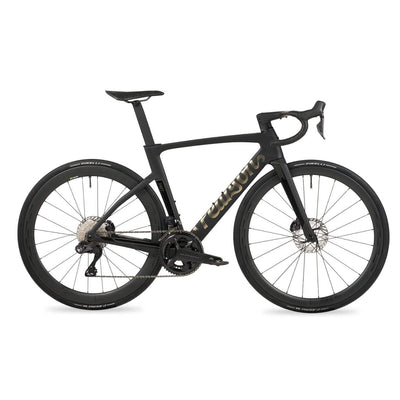Long-Distance Relationship
Endurance rider Emily Chappell discovered the mental-health benefits of cycling the hard way. Not only did it make her (insanely) fit, it also launched a successful writing career.
By Ian Collier.

We wouldn’t suggest for one minute that ultra-cycling is for everyone, but Emily Chappell’s story is one that can’t fail to inspire all of us to spend more time on two wheels.
Her route to cycling began when she quit an office job to become a bike courier in London and has since seen her cycle from Wales to Japan, across Iceland, complete the 2,400-mile journey between Anchorage and Seattle… oh, and another 2,400 miles for the Transcontinental Race.
If you would like the full, unadulterated version then buy her amazing books – What Goes Around and Where There’s A Will, the latter of which was longlisted for this year’s William Hill Sports Book of the Year award.
But just to whet your appetite, Emily gave us the potted version, which began when she moved to London from mid-Wales (following university in Cambridge).
“I found living in the city incredibly daunting in all sorts of ways,” Emily explained, “like many people do. I had seen people cycling around and remember thinking, ‘I don't know how you could do that’.”

Emily describes that original thought of commuting by bike as more daunting than any endurance race since, but the daily struggle with the Tube, trains and packed pavements became the catalyst for her dramatic lifestyle change.
“There was a sense of taking control because I was having a very miserable time. Trying to find my feet in London and mostly failing and not getting enough work. My mental health was quite poor at that point. So, I don't know what made me get on the bike. But as soon as I got on it, things got much, much better.
“Yep, it was, it was terrifying. I had to fight. It was just six miles from Brixton to Regent's Park. And I was awake for most of the night beforehand. I left about two and a half hours for the journey. I was carrying snacks and I didn't have any proper cycling kit; I was wearing jogging bottoms and a woolly jumper.
“Of course, it was fine. And then within a couple of weeks, I had totally caught the bug. I was annoying all my colleagues every day by getting in really full of beans and just burbling about how happy I was about everything. I had been so scared and so unhappy before I started cycling. There was then this massive improvement. Because even if things were scary, I now had tools to deal with them.”

Emily eventually left London to escape the city, discovered her passion for ultra-racing and fulfilled a lifelong dream of writing books. And along the way – tens of thousands of miles in fact – she’s built up a firm understanding of the benefits of riding.
“I’ve always had periods of depression. But since I started cycling there’s generally been this steady upward trend. Everything has got better and my mental health is extremely good most of the time. It's exercise. It's fresh air. It's having to use your mind and body in different ways from how you do everything else in your life. I’ve found cycling and writing are very complimentary and I've got some unproven theories about that.
“When you're doing not only regular exercise, but a lot of exercise, it has a huge effect on the brain. It does interesting things with memory retrieval and creativity. I don't have any real evidence… it’s more of a hypothesis. I did a feature on it a few years ago and still think about it a lot – it’s fascinating.”
It’s not all been plain sailing but her experiences have helped her cope with whatever life throws her way.
“With the long-distance stuff, it’s like a drug. It can be very therapeutic. But it also has addictive properties, and it can be abused. During races, I’ve had highs that I felt were perhaps slightly dangerous. You’re right on the edge and you put away thoughts about your physical or mental safety. And then, when you get home from something like that you’re completely used up. It's very common and normal that… people fall into four to six weeks of terrible depression because of what you've done to yourself.
“But I’ve learnt how to deal with that now. It’s a case of being mindful and thinking, ‘I feel like this as a result of the race and this is what I can and can’t do about it’.”
Emily’s story is inspiring, but many people are still nervous about riding – especially around busy cities.
Her advice?
“One thing I've learned again and again in my whole career as a cyclist is doing things that you're scared of is usually a wonderful feeling. Nothing that I’ve been scared of has ever been as bad as I thought it would be. Nothing I was scared of has ever destroyed me. And then what you have done is expanded your horizons and potentially diminished your fear of something else.”

For your chance to win a copy head over to our Twitter page and follow the instructions. Or buy a signed copy here!










